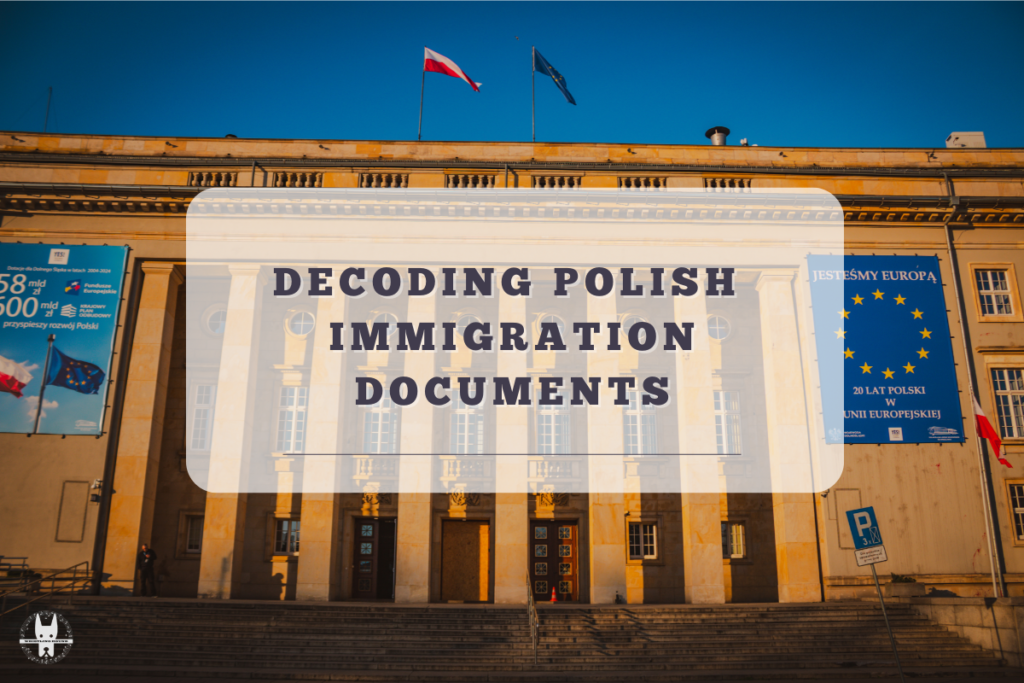Poland’s vibrant cities and low cost of living make it a magnet for freelancers, but its bureaucracy can turn dreams of digital nomad life into a nightmare. From visa restrictions to tax filings, the rules for freelancing here are strict, and one misstep can lead to fines or visa issues. Whether you’re coding for clients in California or designing for firms in Warsaw, understanding the legal landscape of freelancing in Poland is crucial.
This guide breaks down the essentials, what permits you need, where taxes sneak in, and how to keep ZUS from giving you a monthly heart attack, so you can freelance legally and confidently. Let’s dive in.
Do You Need a Visa to Freelance in Poland?
Poland is becoming a rising base for digital nomads in Europe. Freelancing in Poland legally requires the right residence permit type or visa that allows self-employment. Not all visas do, and that’s where many get tripped up. While Poland doesn’t offer a dedicated digital nomad visa (yet), the country is quietly becoming a haven for remote workers. Thanks to reliable infrastructure, a lower cost of living than Western Europe, and its central location, many expats choose to settle here while working for international clients.
But here’s the catch — freelancing legally in Poland requires more than just a laptop and a Wi-Fi password. You’ll need a residence permit or visa that explicitly allows self-employment. For EU citizens, the process is fairly relaxed. For non-EU citizens, it depends on your type of visa or residency card. When in doubt, consult a legal advisor like SG Adwokaci.
Legally acceptable paths for freelancers:
- Temporary residence permit for business – for those opening a sole proprietorship or a Polish company.
- Karta Pobytu (residence card) with work rights – some cards specify access to the labour market; others don’t. Read the fine print.
- National Visa (Type D) – valid for self-employment only if issued explicitly for business or freelance purposes.
- Spouse or family reunification visa – permitted only if it states “access to the labor market” (dostęp do rynku pracy). If you’re married to a Polish citizen or EU resident and your permit grants access to the labour market, you can freelance.
Tourist visas or student-only visas (without labor market access) do not grant freelancing rights.
Who Qualifies for a Freelance Visa Poland?
The law doesn’t use the word “freelancer” but looks at your business activity and registration. If you’re issuing invoices or promoting your services, you’re considered a business entity, and you must register accordingly.
Freelancers in Poland are typically:
- Self-employed individuals working via a Polish sole proprietorship (działalność gospodarcza).
- Remote workers invoicing foreign clients from within Poland.
- Contractors offering services to local Polish companies.
Can You Freelance for Foreign Clients While in Poland?
Yes, if you’re legally registered and your visa allows business activity. Many expats invoice foreign clients, especially in tech, writing, design, or consulting. What matters is where the work is performed (Poland) and whether you’re authorised to work here, not where the client is based.
You may also need to:
- Register for VAT-EU if invoicing EU clients
- Consider double taxation treaties if you’re tax-resident in two countries
Must read: Poland’s Immigration Law Changes in 2025 – What Foreigners in Wrocław Need to Know
Legal Pathways for Freelancers in Poland
Freelancers can register a business, sign B2B contracts, or use invoicing platforms. Each requires compliance with visa and tax regulations.
1. B2B Contracting for Companies
A popular route, B2B contracts are common in tech, marketing, and consulting industries. You register as a sole proprietor (freelancer) and work with companies under a B2B contract.
You’ll need:
- A PESEL (national ID number)
- A NIP (tax ID), and possibly REGON
- To decide if you want VAT registration (depends on income + client type)
2. Registering Your Own Freelance Business (Działalność Gospodarcza)
Before issuing invoices, you must register your freelance activity as a business. Here’s what to do:
- Check your residence status — Confirm your visa/card allows you to run a business.
- Get a PESEL — Required for most business forms (some get it automatically, others apply at the Urząd).
- Register on CEIDG — The official business register via gov.pl.
When registering, you’ll:
- Pick PKD codes (business activity classification)
- Choose your form of taxation (see below)
- Pick a ZUS social security scheme
Register online with a Polish bank account and an ePUAP profile, no in-person hassle needed.
3. Using Business Incubators or Invoicing Platforms
Platforms like Useme manage paperwork for short-term gigs. Income tax and ZUS obligations still apply; the platform often withholds them..
Useful for:
- Expats with pending residency
- Those not ready to register a business
- Short-term projects or low-volume freelancing
Taxes for Freelancers in Poland – What You Must Know
Freelancers face income tax and mandatory ZUS contributions. Selecting the right tax model minimises costs. The good news? There’s flexibility in how you pay.
Three main taxation options:
- Lump sum (ryczałt) – Fixed rate (usually 8.5–15%) based on service type. No deductions allowed.
- Linear tax (19%) – Flat rate, great for high-income freelancers with lots of deductible expenses.
- General scale (12% & 32%) – Progressive tax. Usually avoided by freelancers unless the income is low.
- IP Box (5%) – For tech/creative freelancers, relevant for many expats.
You’ll file taxes annually via the PIT-36 form, but some freelancers opt for quarterly advance payments to stay ahead.
Do You Need to Pay ZUS as a Freelancer?
Yes, unless you’re working through a platform that pays it on your behalf. First-time freelancers can opt for Ulga na start (6 months exemption) and then small ZUS (up to 24 months). After that, you pay full contributions unless you earn very little. Note that 2025 reforms may adjust ZUS rates or eligibility for small ZUS based on regional labour needs.
ZUS (social insurance) covers:
- Pension
- Health
- Sickness/maternity
Is It Legal to Freelance While Waiting for a Residence Permit?
Technically, no, unless your current visa or permit already grants access to the labour market. Poland’s immigration offices won’t stop you from working online, but the legal grey area can affect you when it’s time to renew your visa or apply for a karta pobytu.
Here’s the catch:
- If your previous permit allowed self-employment and you applied for an extension before it expired, you may continue freelancing during the “confirmation stamp” (stamp in your passport).
- If your previous visa didn’t allow business activity, you’re not legally allowed to freelance, even if your application is in progress.
Rule of thumb: If you’re in limbo and your last permit didn’t cover freelancing, pause business activity until you’re covered.
Some freelancers use platforms like Useme during this period — not a perfect solution, but a mere option. Remember, it’s not a safe workaround.
Common Mistakes Freelancers Make (and How to Avoid Them)
Poland’s bureaucracy is a maze in which even seasoned expats trip up. Here are some common blunders freelancers make, and how you can sidestep them.
1. Assuming All Visas Allow Work
Too many foreigners think a Type D visa or temporary stay allows freelancing. It doesn’t, unless it clearly says so.
Fix: Always check for “dostęp do rynku pracy” or consult your decision letter.
2. Skipping Registration Before Invoicing
You can’t legally invoice anyone without first registering a business or using a licensed invoicing platform. Even a one-off job counts as taxable income.
Fix: Register your działalność gospodarcza or sign up with a billing platform like Useme.
3. Choosing the Wrong Taxation Model
Freelancers often pick general taxation (zasady ogólne) without realising it brings higher taxes and mandatory bookkeeping.
Fix: Explore flat tax (19%), lump-sum, or IP Box if you work in tech or creative industries.
4. Ignoring ZUS Obligations
ZUS isn’t optional. Once registered, you’ll owe monthly social security contributions, and late payments accrue penalties.
Fix: Learn about preferential ZUS (ulga na start) and schedule payments on time.
5. Assuming Foreign Income is Untaxed
Just because your client is abroad doesn’t mean Poland doesn’t want a tax on your income. If you live in Poland >183 days a year, you’re a tax resident.
Fix: Read up on double taxation agreements and report your income properly.
Comprehensive Relocation Services for Poland Digital Nomad Visa 2025
For digital nomads and professionals relocating from countries like the UK or the US, navigating Poland’s administrative landscape can be daunting. Services like SG Adwokaci offer tailored assistance, handling everything from visa applications to business registration and tax setup. Engaging such services can expedite the relocation process, ensuring compliance with Polish regulations and allowing you to focus on your work.
Freelancing in Poland offers flexibility, opportunity, and access to the EU market, but only if done legally. Before starting your digital nomad life in Wrocław, make sure your visa, taxes, and permits are in order.
Need help navigating residence permits? SG Adwokaci can walk you through the legal technicalities and make sure you’re fully compliant with the Polish law.
FAQs – Freelancing in Poland as a Foreigner
Can I freelance on a student visa in Poland?
As of April 2025, because of the tightened restrictions, full-time students will no longer work without a permit.
Is it legal to work as a freelancer while waiting for a karta pobytu?
If your application includes a business permit request and you have a stamped decision-in-progress confirmation (with the right clause), then yes. Always check with your voivodeship office.
Can I freelance if my spouse holds a Blue Card?
If you’re under a reunification residence permit marked “access to labor market,” you can register as self-employed.
Do I need an accountant?
Strongly recommended, especially if you’re choosing anything other than lump sum taxation.
Further read: Poland’s Immigration Law Changes in 2025





